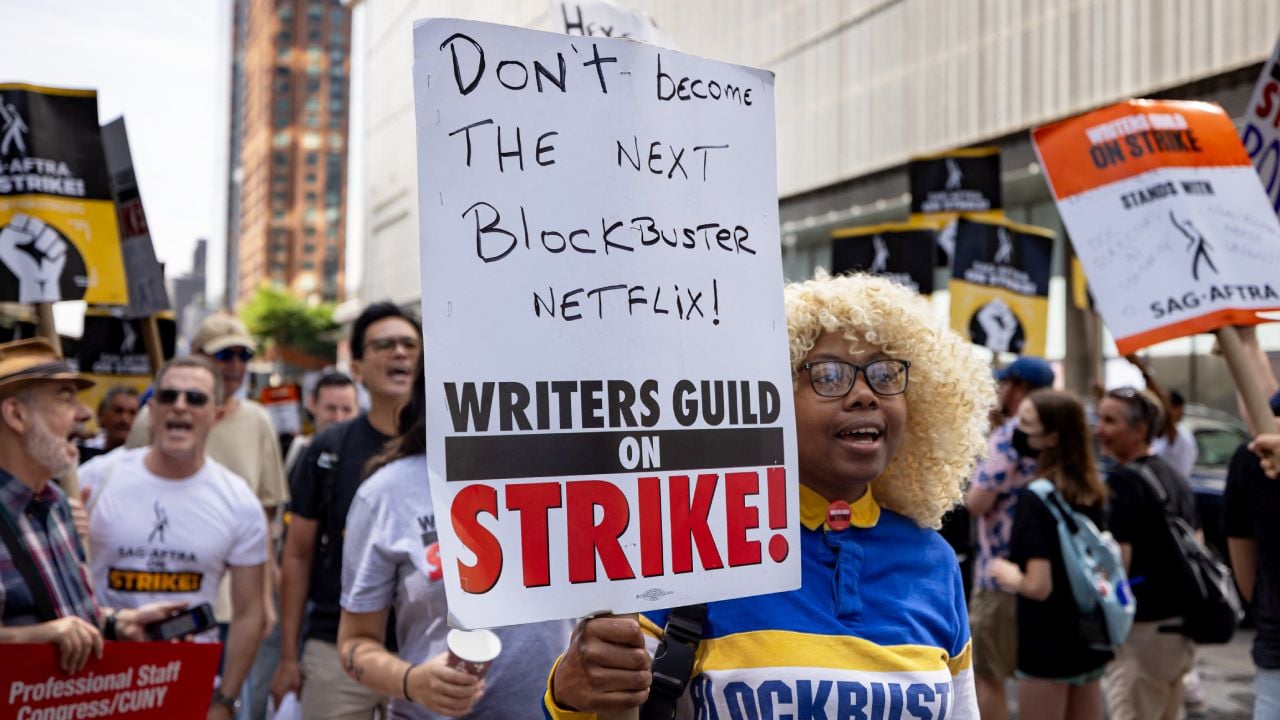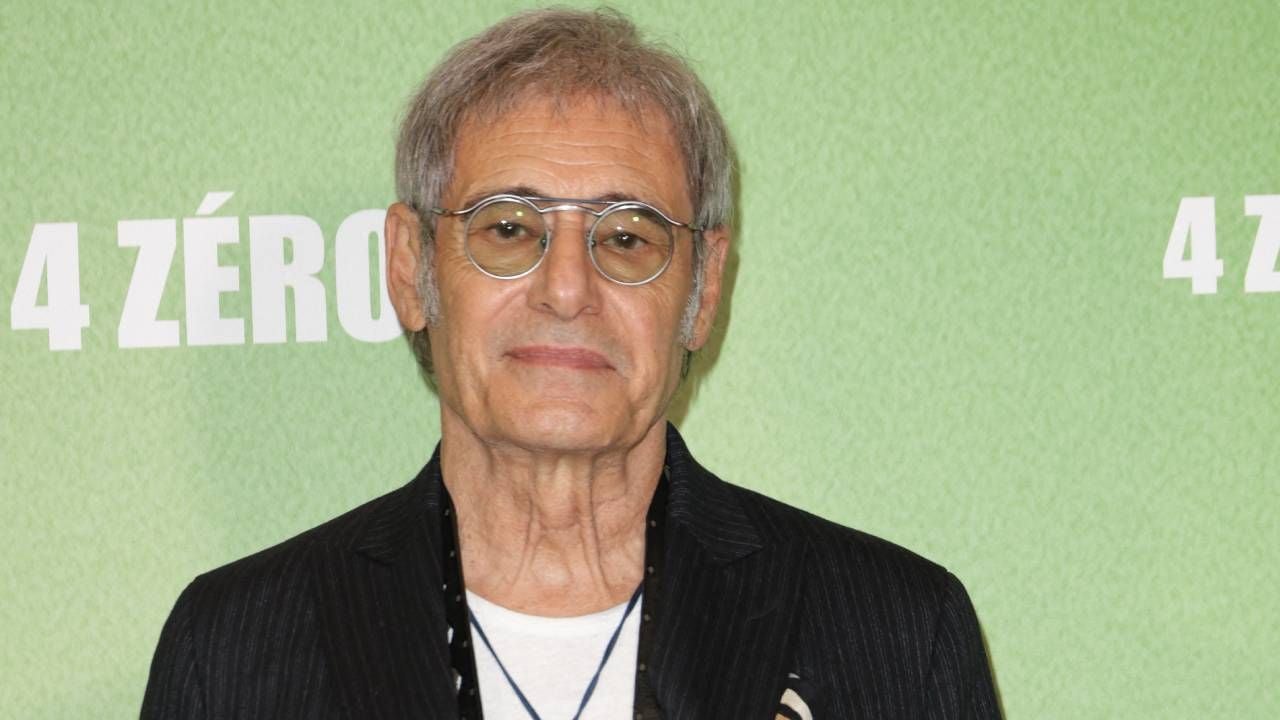The Hollywood screenwriters’ strike is officially over. After a 146-day battle, the WGA (Writers Guild of America, the union of American screenwriters that protects their copyrights) finally won the case with AMPTP (Alliance of Motion Picture and Television Producers) on Sunday, September 24 with an agreement in principle. .
Two days later, the union officially announced the end of the strike – the longest in the history of screenwriters – aimed at renewing their rights and working conditions, increasing their fixed and residual wages (royalties), especially for streaming content, but also regulation. Using artificial intelligence.
- Reminder: Historic double strike in Hollywood: actors join screenwriters, production of films and series under threat
The WGA committee told its members that this was a historic agreement in a statement: “We are proud to say that this agreement is exceptional – with significant gains and protections for writers and screenwriters in all sectors of the Union.”.
Victory to the screenwriters
So what are the details of this special deal struck between the Screenwriters Union and the studios? Deadline He already indicated that the WGA had managed to negotiate an extension of its members’ health insurance until the end of the year for those who were about to lose it.
today, variety It reveals the key terms negotiated by the Screenwriters Union, which released the full 94-page contract along with a summary of the new terms.
The deal includes better compensation terms and protections for the use of artificial intelligence in the writing process, such as:
- AI cannot write or rewrite the work, and AI-generated content is not considered contractual source material, meaning that AI-generated content cannot be used to infringe on the writer’s credit or individual rights.
- A Screenwriter may choose to use AI in their writing if the Studio agrees and provided that the Screenwriter adheres to applicable Company policies, but the Company may not require the Screenwriter to use AI software (eg, ChatGPT) while writing.
- The Studio must disclose to the Author whether any material provided to the Writer has been AI-generated or contains AI-generated content.
- WGA reserves the right to declare that the use of Writers’ Materials to train artificial intelligence is prohibited by contract or other law.
Check out the deal https://t.co/c0ULMXhPL7 ✊ #WGAStrong pic.twitter.com/XpRAl2F7LE
— Writers Guild of America West (@WGAWest) September 27, 2023
Another great victory of the screenwriters was highlighted Los Angeles Times : Increase in residual payments. They will have better bonuses, depending on the audience of movies and series on streaming services, based on a system that is intended to be proportional to the success of the work.
And the platforms need to be more transparent with creators about this: The new contract allows the WGA to get confidential audience measurements for original streaming shows based on hours watched.
Finally, screenwriters will have better working conditions, since the minimum staffing level has been set proportionally. Especially for series, there is a minimum usage of writers per episode.Unless one writer is hired to write every episode in a season“.
For other series, such a plan was created: for series with up to 6 episodes, for example, three writers must be hired, and for series with 13 or more episodes per season, the minimum staff is six writers that can be included. Three writers and producers.
If the writers win their case, the actors – still on strike – won’t despair of reaching an agreement with the studios through their union SAG-AFTRA. According to DeadlineAMPTP and the Screen Actors Guild may finally meet to discuss a new contract in the coming days.
Source: Allocine
Camila Luna is a writer at Gossipify, where she covers the latest movies and television series. With a passion for all things entertainment, Camila brings her unique perspective to her writing and offers readers an inside look at the industry. Camila is a graduate from the University of California, Los Angeles (UCLA) with a degree in English and is also a avid movie watcher.




![New Day ahead: What awaits you on Tuesday, July 15, July 12, in 12 episodes of 2025 [SPOILERS] New Day ahead: What awaits you on Tuesday, July 15, July 12, in 12 episodes of 2025 [SPOILERS]](https://fr.web.img5.acsta.net/img/79/43/79435021c0bfb8e27ed7d08131107424.jpg)


